
Beat aches and pains
It’s easy to make arthritis-friendly nutrients part of a sensible daily diet because there’s such a variety of them, covering virtually every food group. But with any nutrient, certain foods will always be richer sources than others. Keep reading for nine super sources of the nutrients that battle arthritis best.
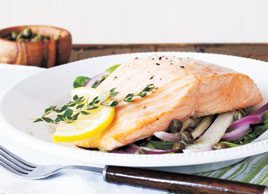
1. Salmon
Salmon is among the richest sources of healthy fats, making it an ideal source of omega-3 fatty acids, especially because it’s less likely than other cold-water fish to harbour high levels of toxic mercury. In addition to its fatty oils, salmon contains calcium, vitamin D and folate. Besides helping with arthritis, eating salmon may protect the cardiovascular system by preventing blood clots, repairing artery damage, raising levels of good cholesterol and lowering blood pressure.

2. Bananas
Bananas are perhaps best known for packing potassium, but they’re also good sources of arthritis-fighting vitamin B6, folate and vitamin C. What’s more, this easily digested, dense fruit is a prime source of soluble fibre, an important part of your diet if you’re trying to lose weight because it helps you feel full without adding calories.

3. Sweet peppers
A single green pepper contains 176 percent of your daily needs for vitamin C-and colourful red and yellow varieties have more than double that amount. That makes them richer in C than citrus fruits, but sweet peppers are also excellent sources of vitamin B6 and folate.
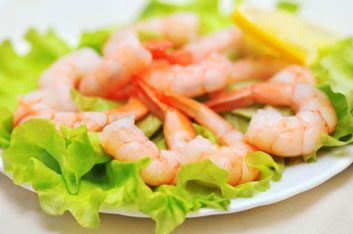
4. Shrimp
Taste and convenience make shrimp the most popular shellfish around. But shrimp also deserves acclaim as one of the few major dietary sources of vitamin D, with 3 oz. (85 g) providing about 30 percent of the recommended daily amount-more than a cup of fortified milk. Shrimp also contains omega-3 fatty acids and vitamin C, along with other nutrients essential for general health, including iron and vitamin B12.
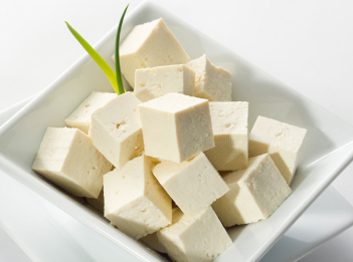
5. Soy products
Once relegated to the shelves of health-food stores, soy products such as tofu and tempeh have reached the mainstream largely because they’ve been shown to have cardiovascular benefits. But soybeans also protect bones, thanks to compounds called isoflavones and significant amount of both vitamin E and calcium. Long a staple of Asian diets, soy can also be found in soy milk-a boon for people who want to avoid lactose or cholesterol in regular milk.

6. Sweet potatoes
These tropical root vegetables (which are technically not related to white baking potatoes) are such a nutritional powerhouse, they once topped a list of vegetables ranked according to nutritional value by the U.S.-based Center for Science in the Public Interest. Sweet potatoes are a rich source of vitamin C, folate, vitamin B6 and dietary fibre, among other nutrients.

7. Cheese
Hard or soft, fresh or ripened, cheese in all its variety is an excellent source of calcium for bones and protein for muscles and other joint-supporting tissues. Depending on type, cheeses (especially hard varieties such as cheddar and Colby) are also a good source of vitamin B6 and folate. The sheer abundance of cheeses makes it easy to get more in your diet-by, for example, slicing hard cheeses onto crackers or spreading soft cheeses such as cottage cheese or Brie onto fruits or vegetables.
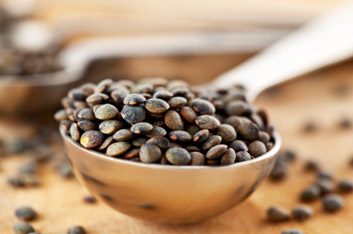
8. Lentils
These dried legumes, with their rainbow of earthy hues, are prime sources of folate, with a single cup providing about 90 percent of your daily needs. But lentils also provide one of the richest plant-based sources of protein, contain large amounts of soluble dietary fibre and hold significant stores of vitamin B6. These and other nutrients make lentils protect the body against heart disease and cancer in addition to arthritis.
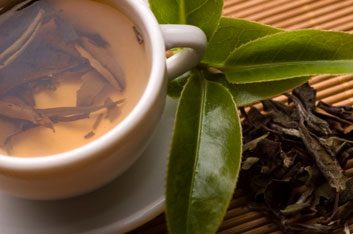
9. Green Tea
This mild, slightly astringent tea contains hundreds of powerful antioxidant chemicals called polyphenols and has been cited for helping prevent problems ranging from cancer to heart disease. But studies also suggest green tea make help prevent or ease symptoms of rheumatoid arthritis. In one study of induced arthritis in mice, green tea cut the disease onset rate almost in half and follow-up studies by the same researchers, at Ohio’s Case Western Reserve University, show promise in humans.
Related:
• The truth about arthritis treatments
• Arthritis: Your guide to treatment
• Natural home remedies: Arthritis
